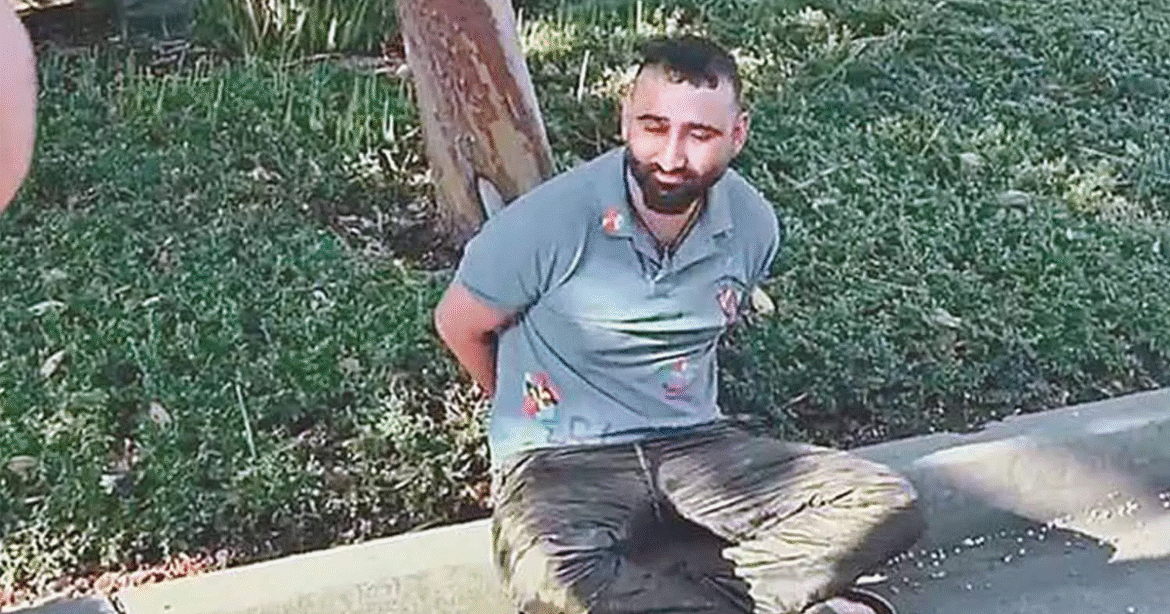AI Generated Summary
- In a startling turn of events that has sent shockwaves through Punjabi diaspora communities in the United States and Canada, Kulwinder Sandhu, father of slain gangster Gagandeep Singh alias “Fauji”, has broken his silence in a revealing interview with journalist and YouTuber Ritesh Lakhi.
- This revelation comes just weeks after a raid on the Stockton Sikh Gurdwara on July 12, following reports of internal conflicts among the committee members and the brandishing of a firearm.
- Following his son’s murder, Kulwinder claims he received pressure from Nijjar and others—including Daljit Sandhu, said to provide refuge to PMG members, and Harjeet Singh Bajwa, reportedly connected with the Montreal Gurdwara in Canada—to withdraw police complaints related to the shooting.
In a startling turn of events that has sent shockwaves through Punjabi diaspora communities in the United States and Canada, Kulwinder Sandhu, father of slain gangster Gagandeep Singh alias “Fauji”, has broken his silence in a revealing interview with journalist and YouTuber Ritesh Lakhi. The interview, which marks his first public appearance in months, sheds light on a murky underworld of crime, religious politics, and transnational drug trafficking allegedly linked to prominent pro-Khalistan extremists (PKE) operating in North America.
Fauji, a former U.S. Army reservist, was gunned down in May 2023 by the Pavittar Majha Group (PMG), according to law enforcement reports. In the video interview, Kulwinder claims his son was targeted for refusing to cooperate in the group’s alleged drug trafficking operations and for assisting U.S. law enforcement in investigations into PMG’s illegal activities.
Kulwinder has accused prominent pro-Khalistan leader Major Singh Nijjar, associated with the U.S.-based group Sikhs for Justice (SFJ), of shielding PMG operatives and being complicit in a criminal drug network that runs along California highways. He also alleged that truck drivers were coerced into smuggling narcotics on behalf of PMG.
Following his son’s murder, Kulwinder claims he received pressure from Nijjar and others—including Daljit Sandhu, said to provide refuge to PMG members, and Harjeet Singh Bajwa, reportedly connected with the Montreal Gurdwara in Canada—to withdraw police complaints related to the shooting. The primary accused in the case, Karman Sandhu and other PMG members, have reportedly evaded prosecution.
Fearing for his life, Kulwinder says he went into hiding on the recommendation of the FBI. His reappearance, he asserts, has also come at the Bureau’s behest to encourage other potential victims of PMG to come forward with information. The full interview can be viewed below:
Among the most troubling claims made by Kulwinder is the alleged exploitation of Sikh youth in the U.S. by pro-Khalistan extremists. He stated that these young individuals are lured into political activism under the guise of religious causes, only to be later used as enforcers in gurdwara politics and illegal operations, including drug trafficking.
This revelation comes just weeks after a raid on the Stockton Sikh Gurdwara on July 12, following reports of internal conflicts among the committee members and the brandishing of a firearm. Stockton Police briefly detained Gurdwara President Harnek Singh Atwal, who is believed to have close ties with Major Singh Nijjar. Officers also searched his vehicle for weapons.
The unfolding saga underscores the growing concern around the intersection of extremist politics and organized crime in North American Punjabi communities. While law enforcement agencies have yet to issue formal statements on Kulwinder’s latest claims, the video has reignited debates around the influence of PKEs, the safety of whistleblowers, and the vulnerabilities within community institutions.
Investigations are ongoing, and sources suggest more arrests may follow as authorities dig deeper into the alleged nexus of crime, extremism, and religious leadership.




